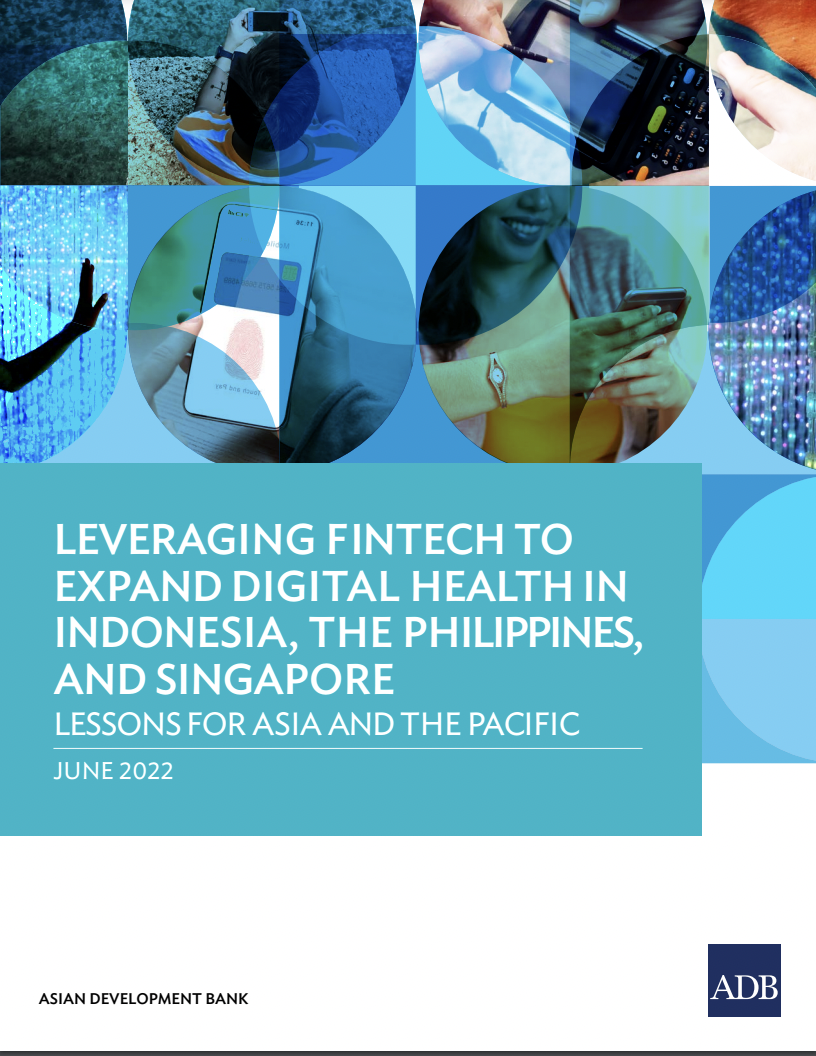This report examines the role of digital technologies in finance and health care that together can create a “Fintech for Health” approach. This can enable access to healthcare financing, information, and services, and overall operational efficiencies for health systems.
A Fintech for Health approach can be powerful in helping long-excluded low- and middle-income populations gain access to health care and buttress them against health-related bankruptcy. Digital access to finance for health care, whether in hospital settings or by telemedicine, is even more urgently required amid the COVID-19 pandemic.
The report then looks at three countries—Singapore, the Philippines, and Indonesia—to examine the current enabling environment and examples of a Fintech for Health approach in Southeast Asia. The differing health system contexts, digital maturity and adoption, and needs of these countries highlight the variety of challenges that a Fintech for Health approach can face and the flexibility with which it can respond.
This report illustrates how financial technology or fintech can be leveraged to improve health systems and health outcomes. It aims to provide information as a resource for (i) government officials and policymakers across sectors, particularly ministries of health, finance, and technology, who can spearhead a “whole of government” approach to tackling complementary national development goals; (ii) the financial services industry as it expands the use cases for embedded finance and open banking beyond the financial services sector; (iii) the health-care actors who are involved in health systems improvement and service delivery; and (iv) start-ups and entrepreneurial companies, the innovators with the agility to partner across sectors with ease and solve for specific health systems challenges that have eluded traditional players and approaches.


